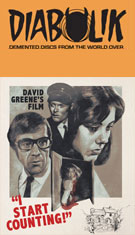



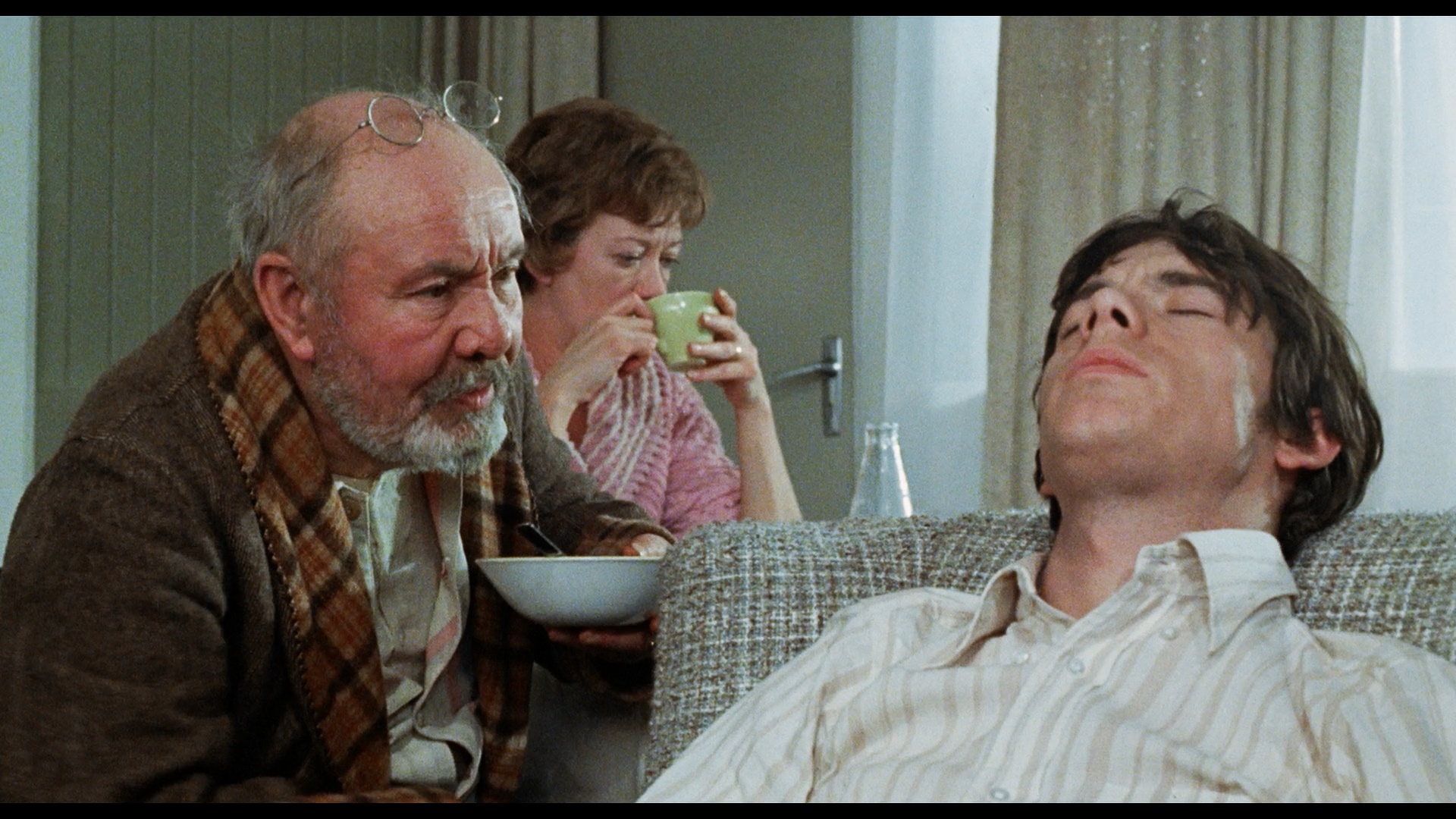 of a hidden secret in the history
of a hidden secret in the history 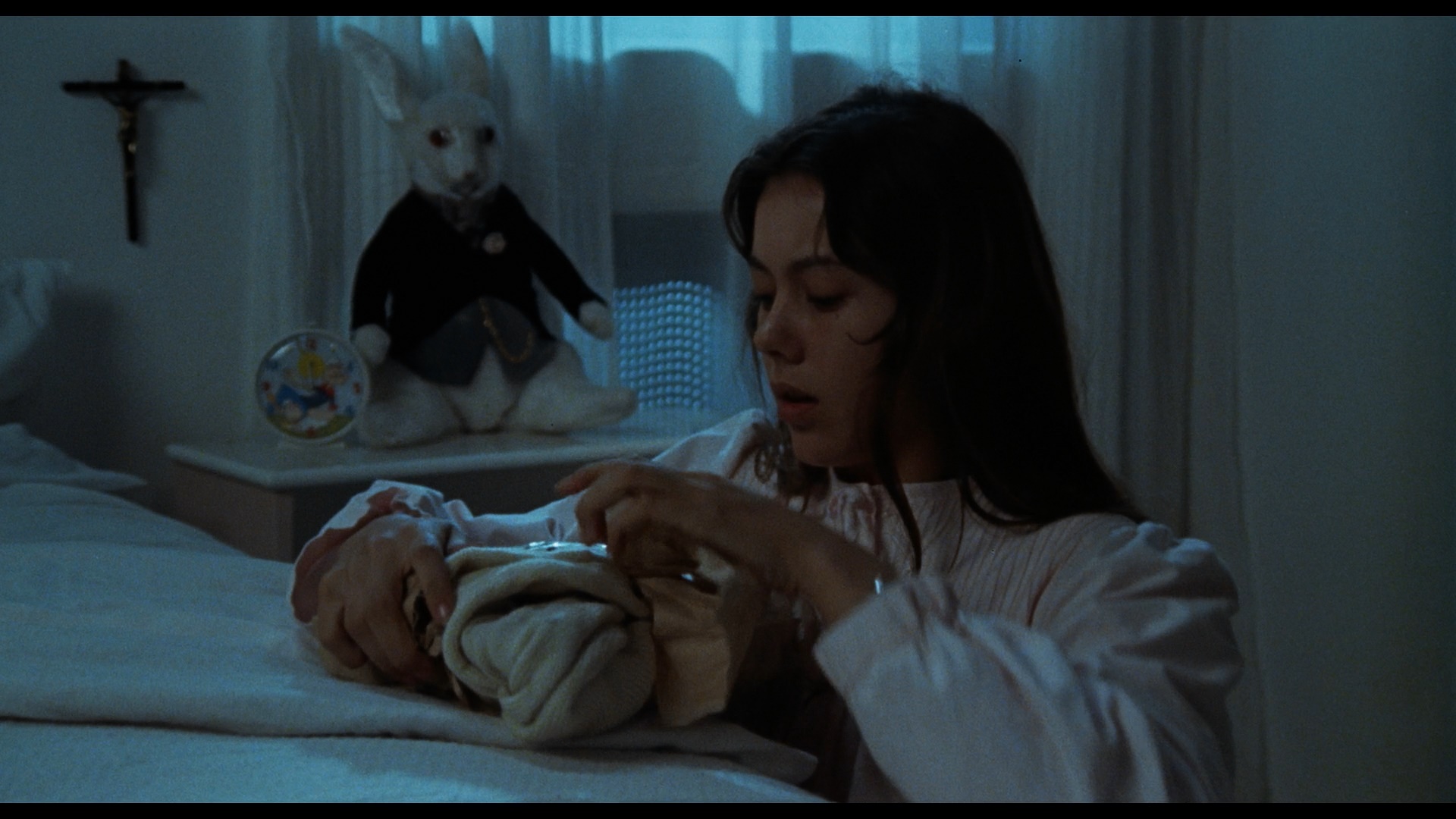 of British cinema that bridges the kitchen sink dramas of the '60s and the gritty shockers of the '70s, this early starring vehicle for a young Jenny Agutter (who would go on to Walkabout, Logan's Run, and An American Werewolf in London, among many others) also shares an affinity with the folk horror films coming out around the time, particularly its evocative and haunting soundtrack by Basil Kirchin of The Abominable Dr. Phibes fame.
of British cinema that bridges the kitchen sink dramas of the '60s and the gritty shockers of the '70s, this early starring vehicle for a young Jenny Agutter (who would go on to Walkabout, Logan's Run, and An American Werewolf in London, among many others) also shares an affinity with the folk horror films coming out around the time, particularly its evocative and haunting soundtrack by Basil Kirchin of The Abominable Dr. Phibes fame. 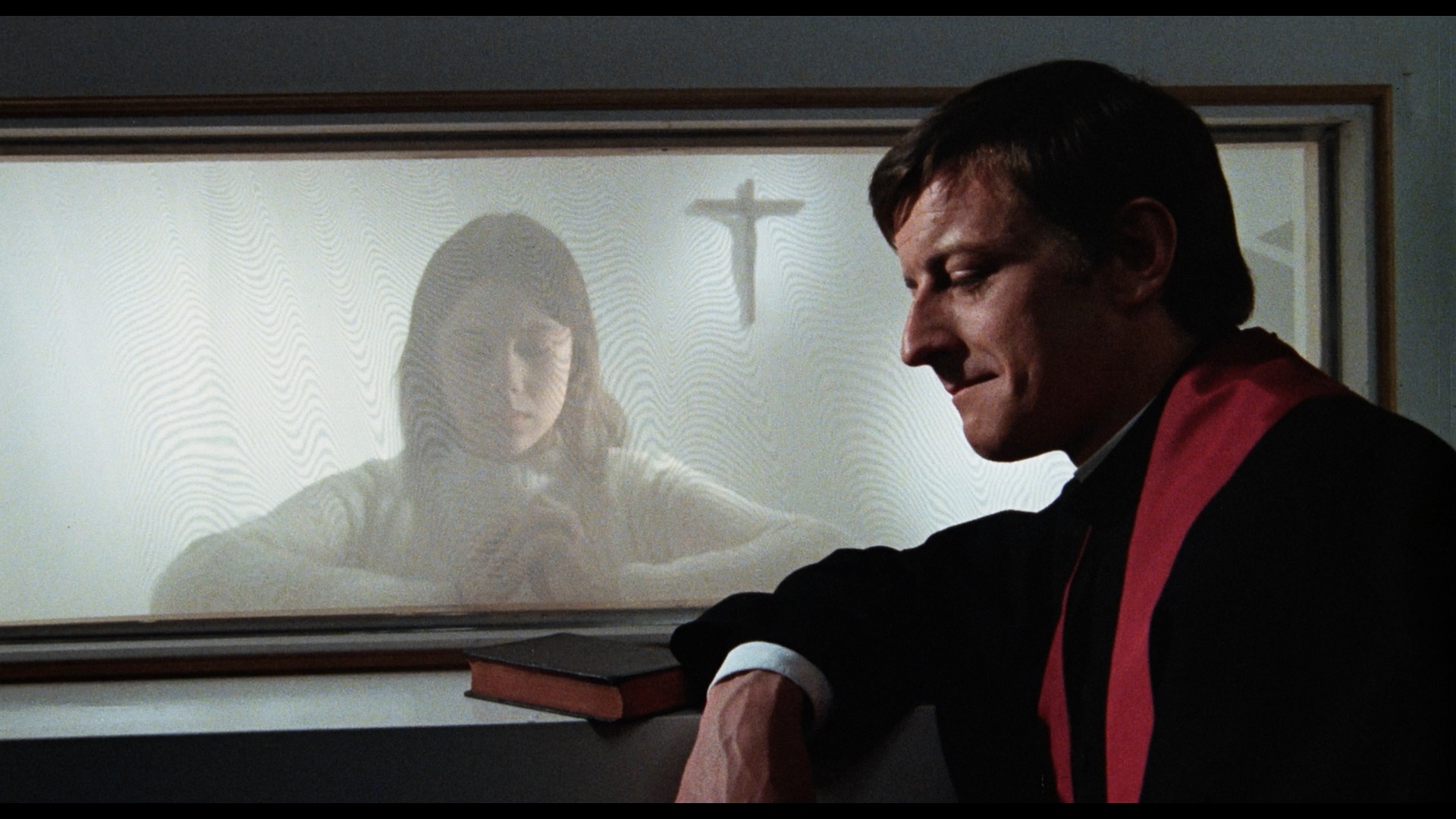 heroine's journey between the environment of normal postwar urban life and the wild, rural world of her past that also mirrors the savage
heroine's journey between the environment of normal postwar urban life and the wild, rural world of her past that also mirrors the savage 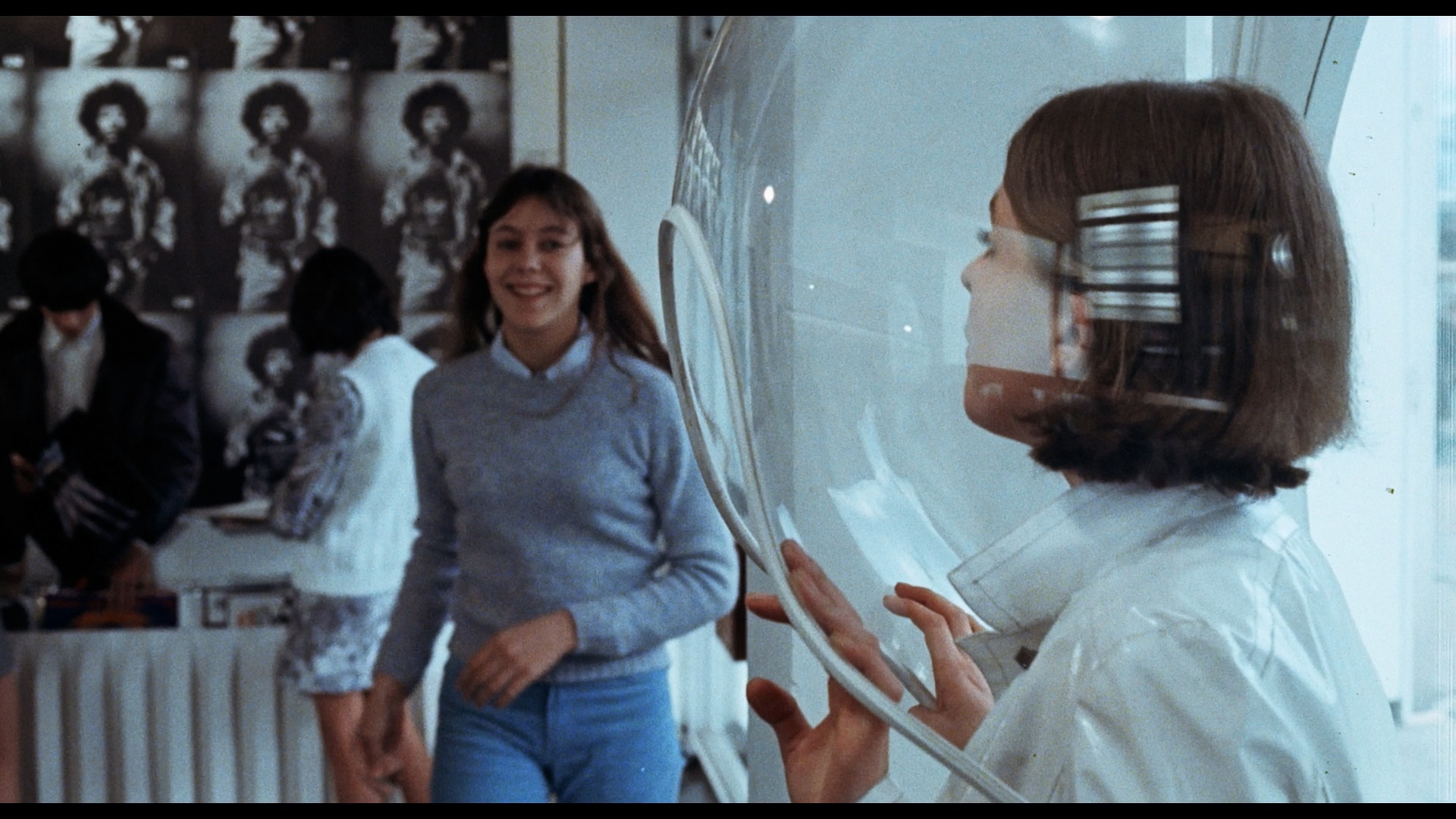 behavior of the killer at large. This could have easily lapsed into a generic Nancy Drew-style mystery in lesser hands, but the film keeps you on your toes by anchoring the story in Agutter's sexual awakening and her inner consciousness rather than plot mechanics. That said, as a thriller it still offers some truly creepy moments and culminates in a nocturnal finale that would've made Claude Chabrol proud.
behavior of the killer at large. This could have easily lapsed into a generic Nancy Drew-style mystery in lesser hands, but the film keeps you on your toes by anchoring the story in Agutter's sexual awakening and her inner consciousness rather than plot mechanics. That said, as a thriller it still offers some truly creepy moments and culminates in a nocturnal finale that would've made Claude Chabrol proud.  commentary with the always welcome Samm Deighan does an astute job of tackling the film's coming-of-age teenage elements, the
commentary with the always welcome Samm Deighan does an astute job of tackling the film's coming-of-age teenage elements, the 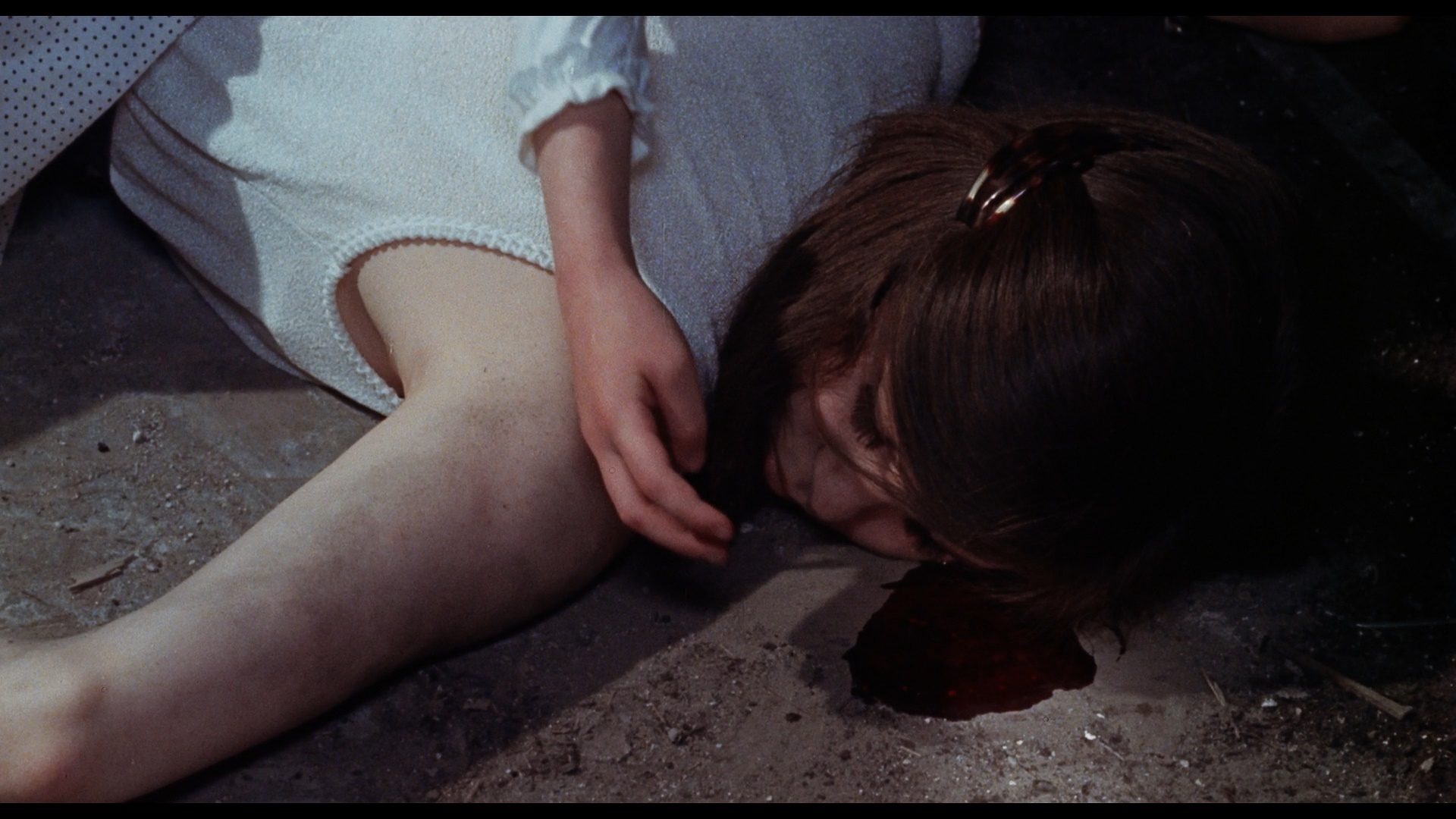 source novel by Audrey Erskine-Lindop (who also wrote the bizarre The Singer Not the Song), the nuances of Agutter's performance, the handling of sexuality and violence, her love of director David Greene's The Shuttered Room, the state of British horror cinema, serial killer genre fare, and much more. In "A Kickstart" (20m24s), Agutter (who also provides a very brief 28s video intro to the film) recalls her days as a very young actress, her memories of her director and costars (in particular Simon Ward), the role the film played in getting her career off the ground, and the positive treatment she received on the set. "Loss of Innocence" (7m25s) is a short video essay by Chris O’Neill (spoken by Tori Lyons) touching on the film's smuggling of an adolescent character study in the guise of a thriller. An image gallery (55s) and the creepy but spoiler-y theatrical trailer are also included. The insert booklet features two essays, "I Start Directing: David Greene’s Complicated Family Stories" by Amanda Reyes (which does a great job of contextualizing this film in the "new town" setting that mirrors the film's depictions of memory and family) and "Remembrances of Basil Kirchin, David Green and I Start Counting" by Matt Stephenson, an appreciative look at the composer's brief but significant cinematic contributions that are now being justifiably reevaluated today.
source novel by Audrey Erskine-Lindop (who also wrote the bizarre The Singer Not the Song), the nuances of Agutter's performance, the handling of sexuality and violence, her love of director David Greene's The Shuttered Room, the state of British horror cinema, serial killer genre fare, and much more. In "A Kickstart" (20m24s), Agutter (who also provides a very brief 28s video intro to the film) recalls her days as a very young actress, her memories of her director and costars (in particular Simon Ward), the role the film played in getting her career off the ground, and the positive treatment she received on the set. "Loss of Innocence" (7m25s) is a short video essay by Chris O’Neill (spoken by Tori Lyons) touching on the film's smuggling of an adolescent character study in the guise of a thriller. An image gallery (55s) and the creepy but spoiler-y theatrical trailer are also included. The insert booklet features two essays, "I Start Directing: David Greene’s Complicated Family Stories" by Amanda Reyes (which does a great job of contextualizing this film in the "new town" setting that mirrors the film's depictions of memory and family) and "Remembrances of Basil Kirchin, David Green and I Start Counting" by Matt Stephenson, an appreciative look at the composer's brief but significant cinematic contributions that are now being justifiably reevaluated today. ![]()